State Performance Plan 2005-2012 - Part B - Arkansas Department Of Education Page 104
ADVERTISEMENT
 1
1  2
2  3
3  4
4  5
5  6
6  7
7  8
8  9
9  10
10  11
11  12
12  13
13  14
14  15
15  16
16  17
17  18
18  19
19  20
20  21
21  22
22  23
23  24
24  25
25  26
26  27
27  28
28  29
29  30
30  31
31  32
32  33
33  34
34  35
35  36
36  37
37  38
38  39
39  40
40  41
41  42
42  43
43  44
44  45
45  46
46  47
47  48
48  49
49  50
50  51
51  52
52 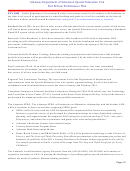 53
53  54
54  55
55 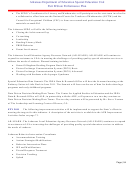 56
56 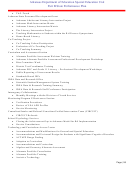 57
57 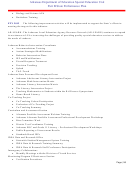 58
58  59
59 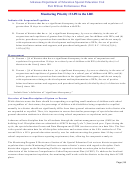 60
60  61
61  62
62  63
63 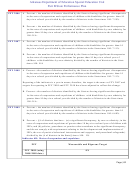 64
64  65
65  66
66 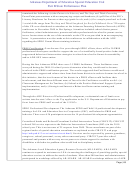 67
67 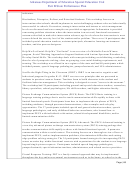 68
68 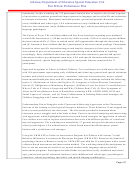 69
69  70
70 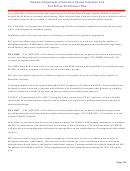 71
71 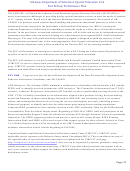 72
72  73
73  74
74  75
75 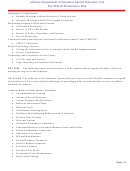 76
76  77
77 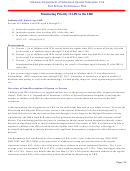 78
78  79
79  80
80 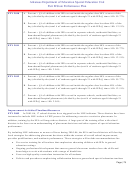 81
81 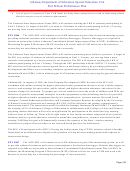 82
82 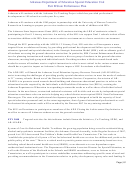 83
83  84
84 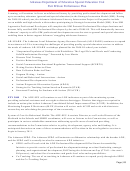 85
85 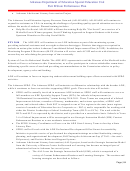 86
86 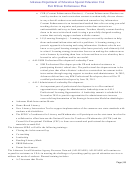 87
87 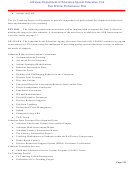 88
88  89
89  90
90 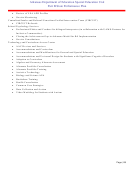 91
91 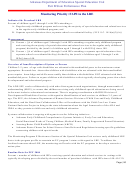 92
92 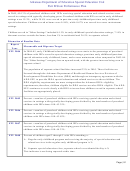 93
93 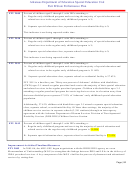 94
94  95
95  96
96 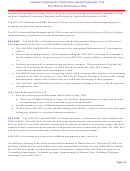 97
97 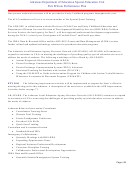 98
98  99
99  100
100  101
101  102
102  103
103 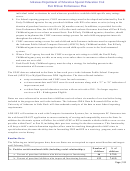 104
104 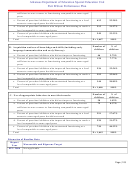 105
105  106
106 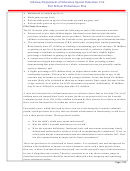 107
107  108
108  109
109  110
110  111
111  112
112  113
113 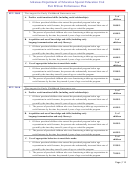 114
114  115
115  116
116  117
117 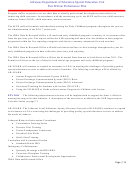 118
118 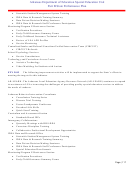 119
119  120
120  121
121  122
122  123
123  124
124 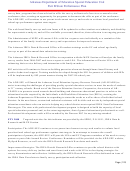 125
125 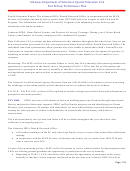 126
126 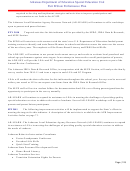 127
127  128
128  129
129  130
130 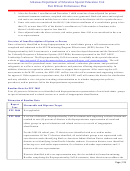 131
131 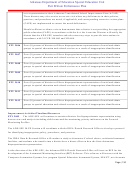 132
132  133
133 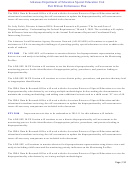 134
134 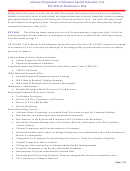 135
135  136
136  137
137 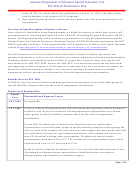 138
138 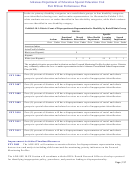 139
139  140
140  141
141  142
142 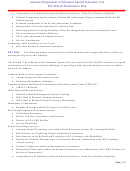 143
143  144
144 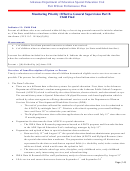 145
145 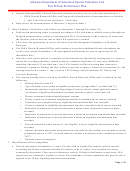 146
146  147
147 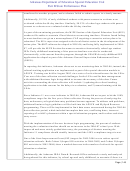 148
148 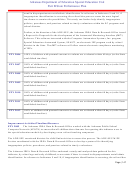 149
149 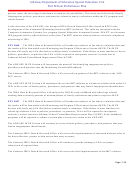 150
150 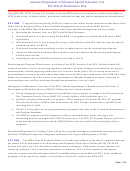 151
151  152
152  153
153  154
154  155
155 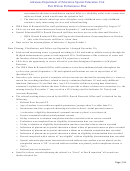 156
156 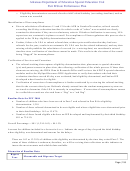 157
157 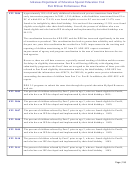 158
158  159
159  160
160  161
161  162
162  163
163 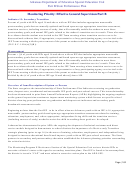 164
164  165
165  166
166 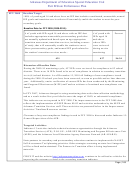 167
167  168
168 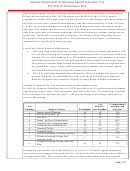 169
169  170
170  171
171  172
172  173
173 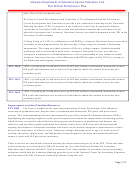 174
174 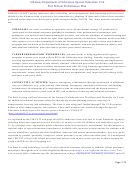 175
175  176
176 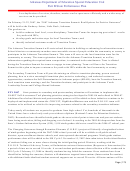 177
177  178
178 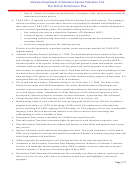 179
179  180
180 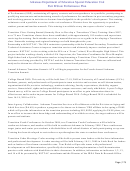 181
181  182
182  183
183  184
184 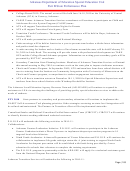 185
185  186
186  187
187  188
188  189
189  190
190  191
191  192
192 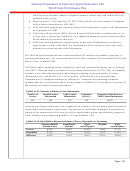 193
193 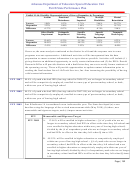 194
194  195
195 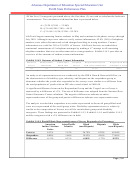 196
196  197
197 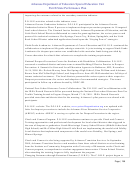 198
198  199
199 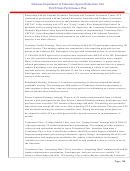 200
200  201
201  202
202  203
203 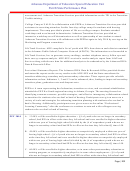 204
204 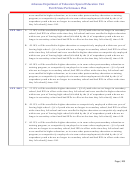 205
205  206
206 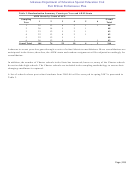 207
207  208
208 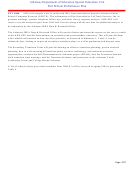 209
209  210
210  211
211 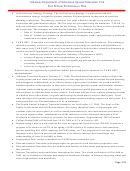 212
212  213
213  214
214  215
215 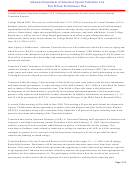 216
216  217
217  218
218 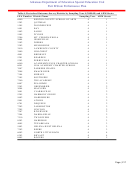 219
219 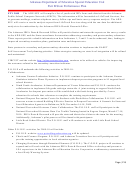 220
220  221
221 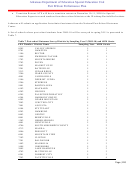 222
222  223
223 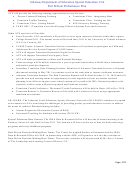 224
224  225
225 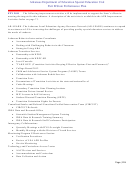 226
226 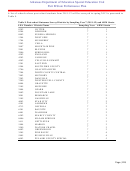 227
227  228
228 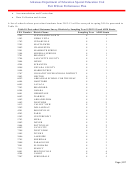 229
229  230
230  231
231  232
232  233
233  234
234  235
235 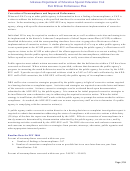 236
236  237
237 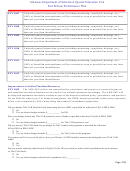 238
238  239
239 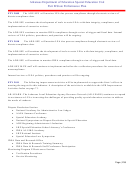 240
240 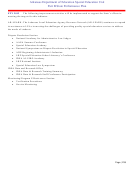 241
241 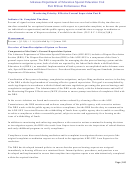 242
242  243
243  244
244  245
245 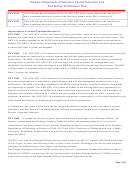 246
246  247
247 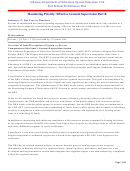 248
248 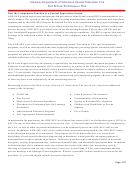 249
249  250
250 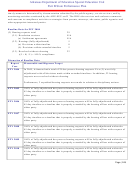 251
251 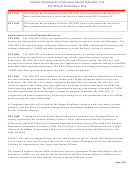 252
252  253
253  254
254  255
255 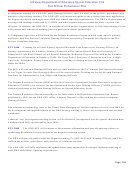 256
256 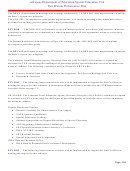 257
257  258
258  259
259  260
260  261
261 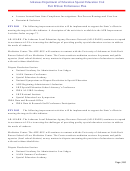 262
262 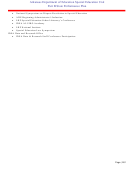 263
263 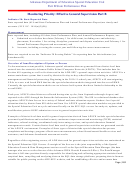 264
264 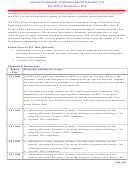 265
265  266
266  267
267  268
268 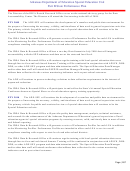 269
269  270
270  271
271  272
272 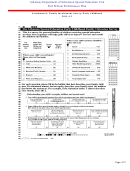 273
273  274
274 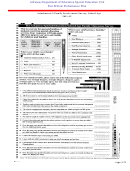 275
275  276
276 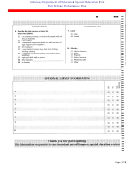 277
277 Arkansas Department of Education Special Education Unit
Part B State Performance Plan
individual initial evaluations be used whenever possible to establish child-specific entry ratings
scores.
4. For federal reporting purposes, COSF consensus ratings must be developed and submitted by Part B
Early Childhood agencies for any preschool children with IEPs who enters or exits (as long as the
duration of preschool services was for six [6] months or more). In addition, as provided for in the
State Performance Plan, the ADE-SEU will collect and evaluate Outcomes data from all Part B Early
Childhood agencies on at least an annual basis. Part B Early Childhood agencies, therefore, should
prepare to implement the COSF consensus ratings process for each child at appropriate intervals
throughout the school year.
5. COSF consensus ratings scores for each child and each Outcomes indicator must be reported through
the Arkansas Public School Computer Network (APSCN) Early Childhood module. Part B Early
Childhood agencies are encouraged to also record child-specific scores in the local automated
systems.
6. When a Part C agency has used the COSF to assign an exit rating to a child, the Part B Early
Childhood agency may use this as an entry score unless there is consensus evidence that the rating
and score are not valid.
7. Each Part B Early Childhood agency must develop a strategy for including parents in the
determination of Outcomes scores.
The COSF data are submitted to the State in June each year via the Arkansas Public School Computer
Network (APSCN) or MySped Resource DDS Application. The data collected includes:
• entry assessment date and COSF score for each outcome;
• exit assessment date and COSF score for each outcome along with a “Y” or “N” indication of
improvement; and
• exit date from special education services with an exit code of NS – No longer requires
services or KE – Kindergarten Eligible.
Dates are cross referenced to ensure that a child has received at least six months of services before being
included in the progress data set for the indicator. The Arkansas IDEA Data & Research Office at the
University of Arkansas in Little Rock will then undertake analysis of the data to meet federal reporting
requirements.
ADE-SEU will continue to work with Computer Automation Systems, Inc. to incorporate EC Outcomes into
the web-based SEAS™ application to ensure continuity of scoring and comparability across the State. In
addition the electronic system will allow for a child’s IFSP or IEP to transfer with the child to a new service
provider within Part C or Part B, including their previous scoring for the three outcomes. This functionality
will keep a child’s entire information together; allow seamless tracking throughout the child’s time in
special education; decrease the delay time in forwarding IFSP and IEP to a receiving program, and create a
complete service history.
Baseline Data:
The following are initial progress data; however States are not required to report actual baseline and targets
until February 2010.
Number of
% of
A. Positive social-emotional skills (including social relationships):
children
children
a. Percent of preschool children who did not improve functioning
46
2.79%
b. Percent of preschool children who improved functioning but not
122
7.41%
Page | 102
ADVERTISEMENT
0 votes
Related Articles
Related forms
Related Categories
Parent category: Legal









